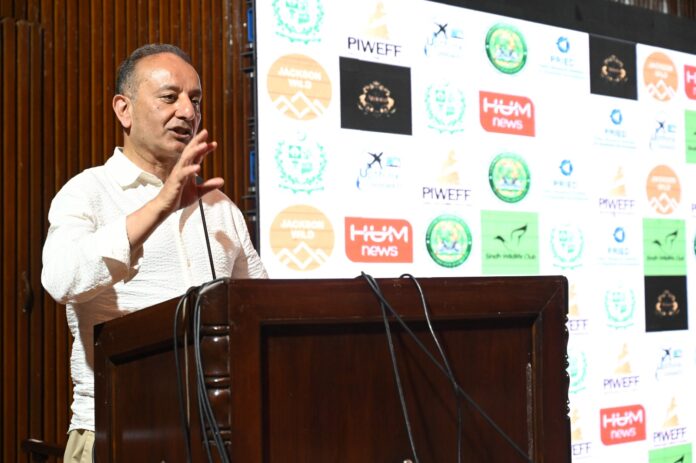ISLAMABAD, Apr 27 (APP): Pakistan, responsible for less than one percent of global carbon emissions, remains one of the countries most vulnerable to climate change, Federal Minister for Climate Change Dr. Musadik Malik said on Sunday.
Speaking as the chief guest at the Pakistan International Wildlife and Eco-Film Festival, he warned that rising temperatures, erratic rainfall and melting glaciers pose severe risks to the nation’s economy, food security, and public health.
Dr. Malik cited the catastrophic 2022 floods as a stark example of climate-induced disasters, emphasizing that such events are becoming more frequent.
Pakistan’s agricultural sector, water resources, and coastal communities are under severe threat, he said and added, if unchecked, climate impacts could shrink our economy by 18-20 percent by 2050.
He noted that extreme heatwaves, unpredictable monsoons, and rapid glacial melt in the Hindu Kush-Karakoram-Himalaya region are exacerbating floods and droughts.
Additionally, rising sea levels endanger coastal populations, while health risks from climate-related diseases are increasing. To combat these challenges, he said the government has prioritized reforestation and biodiversity conservation.
Increasing renewable energy to 60 percent of the energy mix by 2030. Promoting electric vehicles and natural carbon absorption solutions. Strengthening flood resilience and water management systems. “Afforestation and wildlife protection are among our top priorities,” Dr. Malik stated.
Despite domestic efforts, the minister stressed that Pakistan needs financial and technical assistance from developed nations. “The operationalization of the Loss and Damage Fund is urgently required,” he said, urging global stakeholders to fulfill climate finance commitments.
Dr. Malik called for stronger policy coordination and institutional collaboration.
He also emphasized the media’s role in raising awareness and encouraged youth and local communities to participate in climate action. “Effective policymaking and continuous public engagement are crucial to tackling this crisis,” he concluded.
The event, held at the National Library Auditorium in Islamabad, brought together environmental experts, filmmakers and policymakers to discuss sustainable solutions for Pakistan’s climate challenges.

